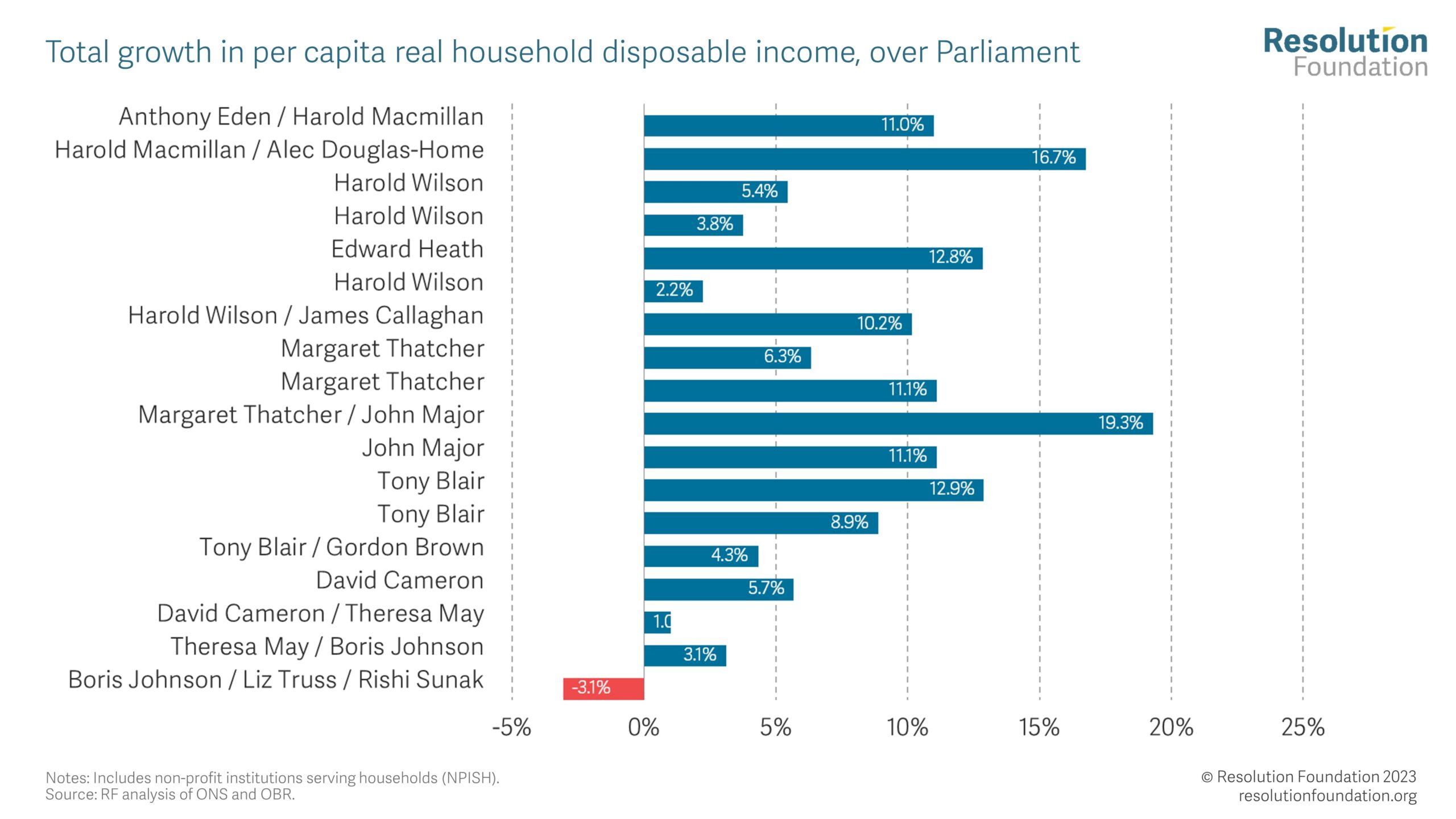Raising the standards for migrants
Previously, those seeking asylum in the UK were required to earn an annual income of at least £26,200. Under the new policy, skilled workers looking to enter Britain will be asked to prove that they earn upward of £38,700 per year.
Why is this objectively controversial?
Well, according to reports published by Statista, the average salary earned in Britain last year was £34,963 per year. London saw the highest average earnings at £44,370 per annum, while those in the North East of England earned below the national average with an annual income of £31,200.
These figures may not be exact, with a report by Forbes placing average earnings at around £35,464 and the organisation Think Plutus lowballing average incomes at £29,669 in 2023.
Regardless of these discrepancies, though, it is clear that the average person living in the UK does not even meet the salary requirements being asked of those seeking asylum from their home nations.
Bearing in mind, these are nations where pervasive poverty and conflict threaten basic human rights as well as life opportunities, forcing people to seek asylum in the first place.
The political debate over societal welfare
The policy, announced this afternoon, has sparked a fierce debate about the Conservative Party’s handling of the UK economy as a whole.
An autumn report by the Resolution Foundation has shown that under Tory leadership, living standards across the country are falling for the first time in modern history.
Calling into question the economic and social welfare in the country was, of course, Labour Party leader Keir Starmer, who said that rising prices due to prolonged inflation are creating a ‘cultural trauma’ and a ‘what next?’ sense of anxiety and fear in British society.

‘[The above] graph shows that things are worse than the 1970s. Worse than the recessions of the 1980s and 1990s. Worse even than the global crash of 2008. What this feels like is a clouding over, a loss, of the future.’
Starmer continued, ‘Parents in the 1970s felt that while day-to-day life was often very tough, the future would be a happier place, Britain would be better for your children. Hard work, in the end, in the long run, would be rewarded…. [A belief], which for working people in Britain now, sadly no longer exists.’
Despite his slightly depressing, yet hard-hitting speech, Starmer’s ideas of how to turn things around – which involve reducing public spending – haven’t been well received by left-leaning supporters.
Lydia Pried, the head of economics at a left-wing thinktank called New Economics Foundation, warned that holding back on public spending and green-lighting budget cuts wouldn’t solve the problems related to UK’s crumbling infrastructure and failing public service sectors.
Reversing tax cuts which benefit the ultra-rich, she suggested, would be a far greater place to start bolstering the pot labelled ‘The Public Penny’.
A ripple effect
Speaking of crumbling public services, free access to public health services through the NHS is central to upholding the welfare of people living in Britain. Unfortunately, the NHS is also an organisation that has crumbled as a result of inadequate funding during 13 years of Conservative Party rule.
Foreign nurses, of which many are women, play an immense role in ensuring health services have continued to run now and throughout the Covid-19 pandemic. In fact, government statistics suggest their role is increasing, with roughly 265,000 out of 1.5 million staff reporting a non-British nationality in June 2023, up from 220,000 a year earlier.
These numbers could soon fall, with the Home Secretary announcing plans to stop overseas healthcare workers from bringing family – including children and spouses – with them to the UK. Care firms will also have to be regulated by the Care Quality Commission if they wish to sponsor work visas for foreign nationals.
Christina McAnea, the general secretary of Unison, warned that rejecting the families of foreign nurses is a risky move when so many foreign nurses with children continue to be the backbone of a struggling NHS.
Sir John Hayes, a right-wing Conservative MP and lead supporter of Suella Braverman (who called sending planes of asylum seekers to Rwanda ‘her dream’) was asked how health and care sectors would manage with fewer foreign care workers. His response? ‘The solution is to employ British workers for British jobs. It’s not that complicated.’
At the risk of calling Sir John Hayes out-of-touch, there is overwhelming evidence that it is extremely complicated to attract (and keep) doctors working for the NHS.
Following Brexit, the UK’s health service saw record shortages in staff, with over 10,000 vacancies for general physicians listed last year. Around the same time period last year, 79 percent of staff said that their low salary made it difficult to justify remaining in the NHS.
In February, it was reported that NHS staff members exhibited extreme and distressing emotions when interviewed about their working conditions – with four in ten junior doctors planning to move abroad to seek better work environments and pay in places such as Australia and New Zealand.
The bigger picture
All in all, it feels like the current approach of the Conservative Party is focused in the wrong areas – and opposition parties don’t seem to offer much relief from the madness.
A hyper-fixation on ‘stopping the boats’ and making cuts to legal immigration is distracting from the obvious solutions that could make life better in the UK for everyone – British or foreign national aside.
As winter grips and the public’s thoughts are consumed with choosing to heat their homes or put food on the table, appropriately taxing Britain’s highest earners and focusing on sustainable and renewable energy seem to be solutions that leading politicians are not interested in talking about.
The Conservative Party’s scramble to limit immigration while continuing financial partnerships with big oil and gas companies seems to be a pre-emptive measure to continue business as usual, while boxing out the millions of people who will become climate refugees as a result of their recklessness in the coming decades.
Finally, what the latest round of immigration policies seems to blatantly suggest is: If you aren’t earning more than the majority of people who already live in this country, stay out.





















